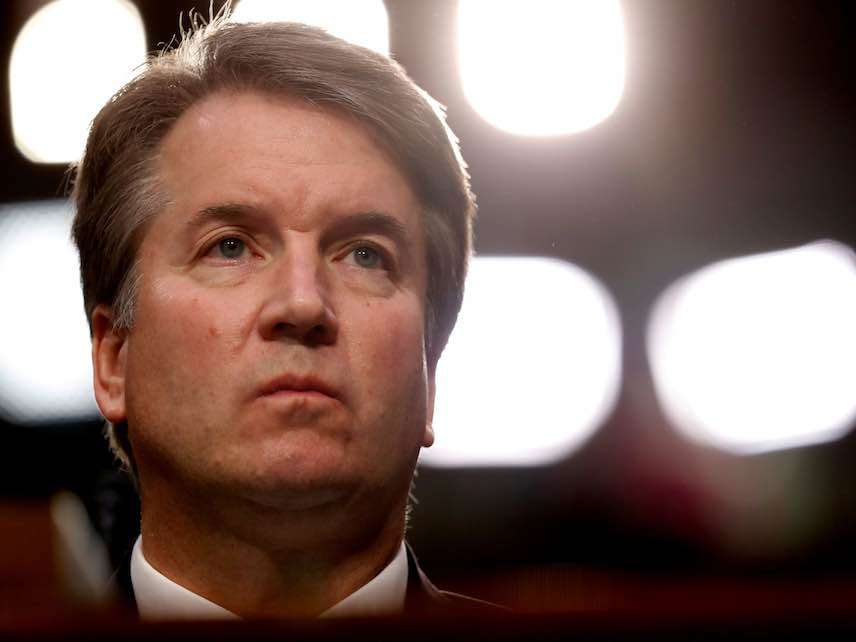Christine Blasey Ford Was Worth Hearing, But No One on the Senate Judiciary Committee Was Listening
This isn't due process-this isn't even an honest attempt to determine what actually happened.

Christine Blasey Ford, the woman who has accused Supreme Court nominee Brett Kavanaugh of sexually assaulting her at a party 35 years ago, answered questions from members of the Senate Judiciary Committee on Thursday morning.
The absurd format of the hearing, the obvious biases of all relevant adjudicators, and the failure to summon additional witnesses for questioning all but guaranteed that these proceedings would be farcical from a due process perspective—and they were.
The Republican senators—all men—delegated Special Counsel Rachel Mitchell to ask their questions for them because they thought it would look better if Ford's cross-examination was conducted by a woman. But because of the structure of the hearing—five minutes of Republican questioning, followed by five minutes of Democratic questioning—Mitchell had to keep pausing to allow those on the other side their turn. This made her line of questioning very difficult to follow. Her flow was constantly interrupted. And many of her questions were minor clarifications of things Ford had said. If Mitchell's ultimate goal was to undermine Ford's credibility, she failed.
"I am here today not because I want to be," said Ford in her testimony. "I am terrified. I am here because I believe it is my civic duty to tell you what happened to me while Brett Kavanaugh and I were in high school."
Indeed, Ford spoke eloquently about what she remembered and what she did not. Her background as a professor of psychology no doubt helped her tremendously—she was able to speak with authority about memory and trauma.
"Occasionally, I would discuss the assault in individual therapy, but talking about it caused me to relive the trauma, so I tried not to think about it or discuss it," said Ford. "But over the years, I went through periods where I thought about Brett's attack. I confided in some close friends that I had an experience with sexual assault. Occasionally, I stated that my assailant was a prominent lawyer or judge but I did not use his name."
Whenever it seemed like Mitchell was getting to the point of her questions, her allotted time came to an end, and then the Democrats spoke. Cross-examination, halted every five minutes, and punctuated by statements of support from partisan Democrats who are obviously biased against Kavanaugh, is pointless. Several senators, including Sen. Kisten Gillibrand (D–NY) and Richard Blumenthal (D–Conn.) made blanket I-believe-you statements. Their minds are already made up, and Kavanaugh hasn't even testified about the alleged assault yet.
The Republicans aren't really interested in the truth, either. If they were, they should have summoned Mark Judge—a friend of Kavanaugh and alleged witness to the incident—to testify, at the very least. They did not.
As I wrote previously, due process requires impartial judges and juries. But the people who will vote to confirm Kavanaugh have largely already made up their minds on the matter of his alleged sexual assault. As the attorney Harvey Silverglate wrote in a recent column, "the Kavanaugh case is not about justice; it's about power… The scenario playing out on Capitol Hill and in the press, the bottom line is simple: whoever has the most votes, whichever political party holds (for the time being) the most power, will determine what the 'truth' is. There will be no civics book ending. No analogy to a real judicial proceeding will be possible."
A full investigation of this matter, and a fair adjudication of Kavanaugh, would require a significantly revised process. This isn't due process—this isn't even an honest attempt to determine what actually happened.


Show Comments (563)